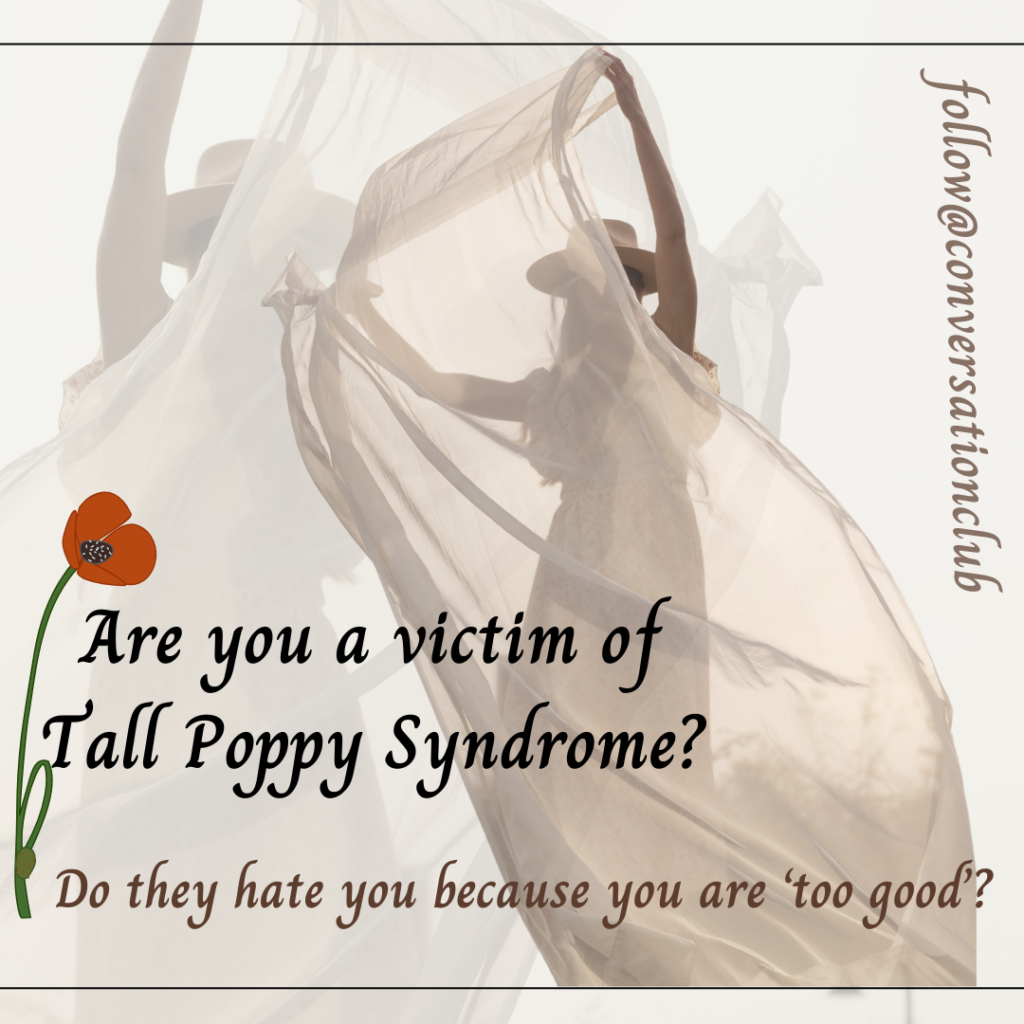Tall poppy syndrome… what is that? Well let’s look at some questions to understand better:
Do they hate you because you are too good? Is everyone targeting you because you are successful? Is jealousy driving criticism? Are you being sidelined because your qualities spread insecurities in others? Is your charisma bothering your professional and personal acquaintances?
If the answer to these questions is affirmative then you are a victim of tall poppy syndrome.
The formal definition
As the name suggests, this disorder is related to the height. Well not in literal terms, but figuratively speaking, this is a condition in which people who are successful are targeted for being just that. If those around you believe that you are doing well for yourself and have the desired qualities, they are filled with extreme criticism and are eventually driven by tendencies to cut you down.
In simpler terms, you are hated for being good and thus eventually served with unwarranted opposition and societal disapproval.
Cutting down the tall poppy
The key problem with tall poppy syndrome is the reaction it incites. People have a natural inclination to cut the tall poppy; in other words to ridicule and kill the competition. There is a deliberate attempt at bringing down the one who has the capability to shine. It is a human need to be better than the others and instead of working on ourselves we tend to bring down the ones who are better. A sense of equality prevails when we cut down the tall poppy.
The disorder exists everywhere
Be it professional circles or your personal life, victims of tall poppy syndrome can be seen everywhere. While the term has been coined to illustrate the situation of successful people in working circles, its application is quite evident in personal social circles as well. In fact, the disorder silently creeps in and touches all irrespective of age and gender.
For example, take the case of a teenager. Imagine a kid who is doing well in school, is popular amongst teachers and kids alike, is quite sociable and looks pleasant. There would be an immediate impulse in many to find faults with this child and perhaps create a hostile environment to irritate the innocuous kid.
Consider another situation where you are at a social dinner. There’s this woman who is radiating charisma and her charm is adding spark to the conversations. There would be an unconscious impulse to find flaws in her and perhaps contradict her opinions.
In fact, when we talk about professional circles, tall poppy syndrome sneaks in every nook and corner. If a worker is accomplished and is determined to do well, peers and superiors both feel threatened. A chain reaction is sparked by this insecurity and resentment. All others get into action and put their best foot forward to cut this tall poppy. Be it by showing aggressive tactics or playing subtle behind the back office politics, all around this successful person are intrinsically motivated to push down the tall poppy.


Add a Comment